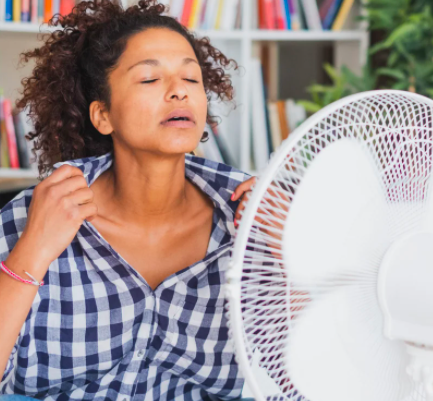Hot Flashes—A Signal For Help
Treating women with hot flashes and night sweats, I’m struck by what a strain it is on the body. Swinging from burning hot and drenched in sweat to shivering cold multiple times throughout the day, then kept awake at night by the same cycle--only to wake up and do it again. Exhausting!
Hot flashes are also called vasomotor symptoms. When she experiences a hot flash, a woman’s blood vessels in her periphery constrict and dilate overtime to release heat. This is a complex interaction mediated by many hormonal and nervous system interactions. Decreased estrogen is a primary hormonal change, of course, but now research is starting to recognize potential roles of insulin, glucose, cortisol and various neuronal pathways in the way a menopausal woman regulates temperature. Bottomline, seems like a lot of wear and tear on our circulatory system.
Luckily some clinicians and researchers are paying attention to what this dysregulated temperature and vessel activity means for women. Dr. Sara Gottfried, a Bay Area voice for women’s health, reporting on research presented at the North American Menopause Society, explains that hot flashes can be a harbinger for greater health issues down the line.
Hot flashes are correlated with a greater risk of cardiovascular disease, research is starting to reveal. Not only that, but “Black women experience the longest duration of vasomotor symptoms at 10.1 years”, Dr. Gottfried writes. So we need to actively understand the implication of symptoms at menopause, ask women what they are experiencing, and pay particular attention to women who may be at greater risk. For treatment, there are many tools, hormone therapy, of course being the most well-known, but acupuncture, lifestyle, nutrition, and stress reduction techniques can all come to the aid.
Since our body systems are interconnected, this relationship isn’t a great surprise. And yet, it’s important to raise awareness that women deserve treatment not only to feel good throughout this period of life, but that balancing hormones and feeling good is associated with better health.
